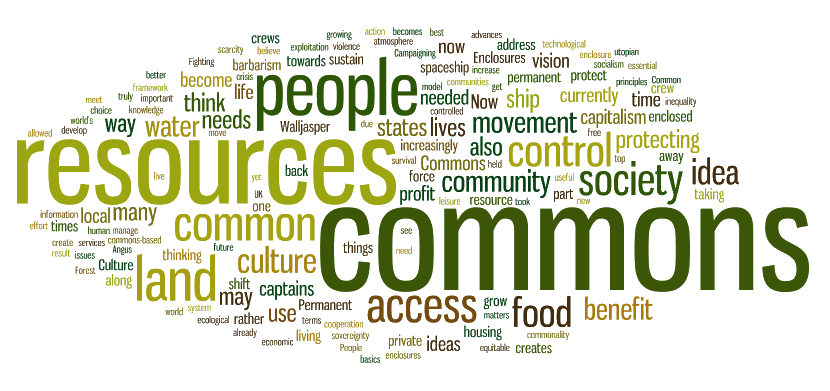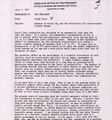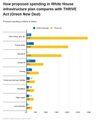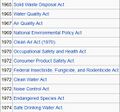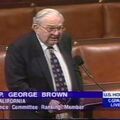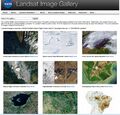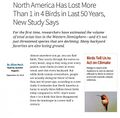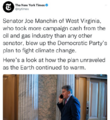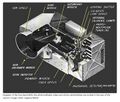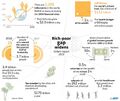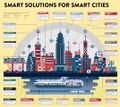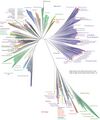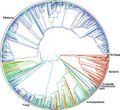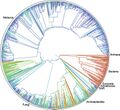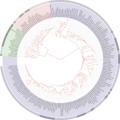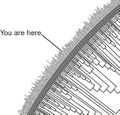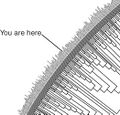Category:Ecological Economics
Eco-nomics & Ecological Economics
Ecological economics vs. Conventional economics
Ecological economics is a growing transdisciplinary field that aims to improve and expand economic theory to integrate the earth’s natural systems, human values and human health and well-being. In conventional economics, the primary goal is to increase goods and services produced by human industries (built capital), and the gross domestic product (GDP) is a national measure of the total value of goods and services produced annually. Conventional economics assumes that ever-increasing GDP is desirable, possible, and that everyone benefits.
Ecological economics takes a broader perspective and recognizes that there are more things that contribute to human well-being than just the amount of stuff, such as health and education (human capital), friends and family (social capital) and the contribution of the earth and its biological and physical systems (natural capital). Its goal is to develop a deeper scientific understanding of the complex linkages between human and natural systems, and to use that understanding to develop effective policies that will lead to a world which is ecologically sustainable, has a fair distribution of resources (both between groups and generations of humans and between humans and other species), and efficiently allocates scarce resources including “natural” and “social” capital...
• Natural capital is a traditional and re-emerging view that recognizes the importance and value of the goods and services provided by nature. It goes beyond the traditional consideration of natural products as raw materials for conversion into goods (trees into houses or paper) to consider functions that are provided by planetary systems (breathable air, a stable climate) or local ecosystems (flood protection by coastal wetlands, and drinking water purification by forests). Sometimes the monetary value of these ecosystem services can be calculated, such as the cost to replace them with built capital (coastal wetlands with levees). However, some natural services are priceless. They are essential for life, and irreplaceable (breathable air)...
What is sustainability and how does it relate to Ecological Economics?
Ecological economics reminds us that "sustainability" is a multi-faceted goal by focusing on the complex interrelationship between different elements of sustainability: ecological sustainability, social sustainability and economic sustainability. It reminds us of the complexity of the many interacting systems that make up the biosphere and the uncertainty that is a fundamental characteristic of all complex systems. Ecological economics is concerned with the problem of assuring sustainability in the face of uncertainty, and aims to maintain the resilience of ecological and socioeconomic systems by conserving and investing in natural, social and human assets.
Ecological economics, as Green Policy360 sees it, seeks 'true cost' economic efficiency.
Economic efficiency and good economic decision making are not possible if all of the costs and benefits are not considered or included in prices. Often current market prices do not capture the full costs of an economic activity that depletes resources or damages natural systems (natural capital); or inflicts costs to human health and well-being (social and human capitals) caused by pollution or other side effects of the activity. These excluded costs are called "externalities", defined as costs that are not included in the price of the product but are shouldered by a third party, outside the producer/seller and buyer/consumer. Capture of these costs in the market would provide a powerful incentive to move towards sustainability.
-=-=-=-=-=-=-=-=-=-=-=-=-=-=-=-=-=-=-=-=-=-=-=-=-=-=-=-=-=-=-=-
Economics/Eco-nomics: Real World Challenges & Opportunities
Environmentalism – Multidisciplinary Ecological Economics
Environmental economics, the economics of natural resources, sustainable development, green economics, sustainability science, bioeconomics, ecodevelopment: the disciplines and concepts situated at the crossroads of environmentalism and economics are many. This article examines “ecological economics,” a field that has achieved academic recognition and launched numerous debates...
Upheaval
Environmental economics, the economics of natural resources, sustainable development, green economics, sustainability science, bioeconomics, ecodevelopment, etc...
There are many different perspectives from which economics considers the environment... Environmental economics has emerged recently, now with thousands of researchers across the globe...
The founding of the ISEE (International Society for Ecological Economics) in 1988 and of the journal Ecological Economics in 1989 have given the field stature.
Ecological economics is often seen as related to environmental and natural resource economics... Its relationship with neoclassical environmental economics is the subject of debate and the distinction between weak and strong sustainability is often seen as the dividing line between environmental economics and ecological economics...
No economist who adheres to ecological economics accepts the hypothesis that natural capital can be substituted (depleted) ad infinitum or that “backstop technologies” (accelerated growth) can solve the problem of scarcity.
Ecological economics is perhaps best characterized by diversity and plurality. It borrows from “standard” economics, institutional economics, post-Keynesian economics, scientific ecology, environmental ethics, and environmental history. For ecological economics, the common denominator between these approaches is an effort to understand the relationship between economic systems and ecosystems.
Ecological econimics essential traits are an interest in nature, justice, and time, all of which are overlooked by standard economics.
Perhaps more than other disciplines aspiring to be sciences, environmental ecologists have developed normative frameworks at the same time as they have constructed analytical tools. The field is constantly developing and interrogating concepts with a normative tenor, such as “sustainability,” “resilience,” and “environmental assessment.”
- -=-=-=-=-=-=-=-=-=-=-=-=-=-=-=-=-=-=-=-=-=-=-=-=-=-
https://en.wikipedia.org/wiki/Ecological_economics
Ecological economics/eco-economics refers to both a transdisciplinary and interdisciplinary field of academic research that aims to address the interdependence and coevolution of human economies and natural ecosystems over time and space. It is distinguished from environmental economics, which is the mainstream economic analysis of the environment, by its treatment of the economy as a subsystem of the ecosystem and its emphasis upon preserving natural capital. One survey of German economists found that ecological and environmental economics are different schools of economic thought, with ecological economists emphasizing strong sustainability and rejecting the proposition that natural capital can be substituted by human-made capital.
Ecological economics was founded as a modern movement in the works of and interactions between various European and American academics (see the section on history and development below). The related field of green economics is, in general, a more politically applied form of the subject.
According to ecological economist Malte Faber, ecological economics is defined by its focus on nature, justice, and time. Issues of intergenerational equity, irreversibility of environmental change, uncertainty of long-term outcomes, and sustainable development guide ecological economic analysis and valuation. Ecological economists have questioned fundamental mainstream economic approaches such as cost-benefit analysis, and the separability of economic values from scientific research, contending that economics is unavoidably normative rather than positive (i.e. descriptive). Positional analysis, which attempts to incorporate time and justice issues, is proposed as an alternative. Ecological economics shares many of its perspectives with feminist economics, including the focus on sustainability, nature, justice and care values.
Some key concepts of what is now ecological economics are evident in the writings of E.F. Schumacher, whose book Small Is Beautiful – A Study of Economics as if People Mattered (1973) was published just a few years before the first edition of Herman Daly's comprehensive and persuasive Steady-State Economics (1977). Other figures include ecologists C.S. Holling, H.T. Odum and Robert Costanza, biologist Gretchen Daily and physicist Robert Ayres. CUNY geography professor David Harvey explicitly added ecological concerns to political economic literature. This parallel development in political economy has been continued by analysts such as sociologist John Bellamy Foster.
○
Eco-nomics
http://www.greenpolicy360.net/w/Category:Eco-nomics
Anthropocene
http://www.greenpolicy360.net/w/Anthropocene
The Birth of the Anthropocene by Jeremy Davies
Anthropocene or Capitalocene?: Nature, History, and the Crisis of Capitalism by Elmar Altvater, Eileen C. Crist, Donna J. Haraway, Daniel Hartley, Christian Parenti, and Justin McBrien -- Jason W. Moore (Editor)
Facing the Anthropocene: Fossil Capitalism and the Crisis of the Earth System by Ian Angus
After Nature: A Politics for the Anthropocene by Jedediah Purdy
The Shock of the Anthropocene: The Earth, History and Us by Christophe Bonneuil & Jean-Baptiste Fressoz
-=-=-=-=-=-=-=-=-=-=-=-=-=-=-=-=-=-=-=-=-=-=-=-=-=-=-=-=-=-=-=-
SJS / Siterunner: An eventful debate is underway. The academic version of the debate speaks of political economy, macro/micro-economics, and classic versus contemporary economics.
An alternative approach, one that speaks o f "greening economics" and a new field of "eco-nomics" looks to improve economics as eco-nomics.
Green politics is exploring the contradictions and costs of economic "business-as-usual" -- from the financial services industry and 'too big to fail' subsidization to 'money in politics' and its impact on foreign and domestic policy, war spending and national debt, falling income and collapsing infrastructure. At the business org level, new ideas are being interjected into day-to-day planning and operations, ideas as in 'sustainability', 'energy efficiency', 'direct participation of shareholders/stakeholders' and a diverse set of green eco-solutions with both short- and long-term vision.
One of the leading Green economic thinkers is Richard Wolff, a founding member of the Green Party of New Haven, Connecticut, and its mayoral candidate in 1985.
Here he speaks of the study of economic systems from a classic point of view and the New School of Social Research (where your GreenPolicy siterunner studied graduate economics.
New School for Social Research)
Richard D Wolff, Professor of Economics Emeritus -- University of Massachusetts-Amherst / Graduate Faculty, New School, New York
Richard Wolff in a 2013 interview:
- "[E]verything you expect about how the world works probably will be changed in your life, that unexpected things happen, often tragic things happen, and being flexible, being aware of a whole range of different things that happen in the world, is not just a good idea as a thinking person, but it’s crucial to your survival.
Read More:
http://www.democracyatwork.info/
https://www.amazon.com/Democracy-at-Work-Cure-Capitalism/dp/1608462471/ (2012)
https://www.amazon.com/Occupy-Economy-Challenging-Capitalism-Lights/dp/0872865673/ (2012)
https://www.amazon.com/Contending-Economic-Theories-Neoclassical-Keynesian/dp/0262517833/ (2012 - with Stephen Resnick)
https://www.amazon.com/Capitalism-Hits-Fan-Economic-Meltdown/dp/1566569362/ (2013)
https://www.amazon.com/Capitalisms-Crisis-Deepens-Economic-Meltdown/dp/1608465950/ (2016)
https://images-na.ssl-images-amazon.com/images/I/41i7J7jgdmL._SX326_BO1,204,203,200_.jpg
-=-=-=-=-=-=-=-=-=-=-=-=-=-=-=-=-=-=-=-=-=-=-=-=-=-=-=-
'Ecological Economics': An emerging paradigm
Sustainable economies, a new interdisciplinary framework that embraces the linkages among economic growth, environmental degradation, and social inequity.
https://en.wikipedia.org/wiki/Herman_Daly
http://islandpress.org/herman-e-daly
-=-=-=-=-=-=-=-=-=-=-=-=-=-=-=-=-=-=-=-=-=-=-=-=-=-=-=-
'Eco-nomics': A New Green Political Economy
http://www.greenpolicy360.net/w/Category:Eco-nomics
http://www.greenpolicy360.net/w/Category:Ecological_Economics
-=-=-=-=-=-=-=-=-=-=-=-=-=-=-=-=-=-=-=-=-=-=-=-=-
http://www.greenpolicy360.net/w/B_Corporation
http://www.greenpolicy360.net/w/Capitalism_and_the_Environment
http://www.greenpolicy360.net/w/Mondragon_Cooperative
http://www.greenpolicy360.net/w/New_Economy_Movement
http://www.greenpolicy360.net/w/Stakeholder_Theory
http://www.greenpolicy360.net/w/The_Commons
Eco-Reading
Center for Economic and Policy Research, Washington DC
- https://en.wikipedia.org/wiki/Center_for_Economic_and_Policy_Research
- http://cepr.net/about-us/board
Center for Popular Economics, Amherst, MA
Dollars & Sense, Somerville, MA
Global Development and Environment Institute, Tufts University
Political Economy Research Institute, UMass, Amherst
○
SJS / Siterunner: Again, looking back to the Graduate Faculty of the New School in New York, to David M Gordon, who passed away at a young age in 1996. David spoke of long-term economics and coined the phrase “social structure of accumulation” (SSA) that speaks of the need to consider multi-generation impacts of economic activity. Let's look back -- and forward -- at a number of these ideas with Thomas Weisskopf who contributes in 2014 to the David Gordon Memorial Lecture --- Reflections on 50 Years of Radical Political Economy. The concept of 'radical' speaks of alternatives to neoclassic/neoliberal economics as new threads emerge responding to economic and environmental challenges.
More from the New School for Social Research / Political Economy-Liberal Studies-History of Ideas (1970-2000)
- Gordon, David M. with Bowles, Samuel, "Beyond the Waste Land: A Democratic Alternative to Economic Decline" (1983) - https://www.amazon.com/Beyond-Waste-Land-Democratic-Alternative/dp/0385183453/
- Gordon, David M. with Bowles, Samuel; Weisskopf, Thomas E. "After the Waste Land: Democratic Economics for the Year 2000 (1990) - https://www.amazon.com/After-Waste-Land-Democratic-Economics/dp/087332644X/
Publications of David Gordon Memorial Lecture Series - http://urpe.org/?page=rrpe&side=browse_content&sub=david_gordon_memorial_lecture
○
Center for American Progress
Economic Policy Institute
Institute for New Economic Thinking
Institute for Policy Studies
- https://en.wikipedia.org/wiki/Institute_for_Policy_Studies
- https://en.wikipedia.org/wiki/Institute_for_Policy_Studies
New America Foundation
-=-=-=-=-=-
The second generation of ecological economics: How far has the apple fallen from the tree?
Ecological economics was first created as a forum providing space for criticizing 'normal science, i.e. science based on an oversimplification of complex issues and aiming at predictions.
- The paper analyzes 6237 abstracts of articles published in four journals since 1989.
- Scientific discourse produced in ecological economics has evolved.
- Ecological economics discourse is converging toward environmental economics.
- The valuation of ecosystem services discourse has become central in ecological economics.
- The prevalence of pragmatism in the field and in the editorial boards exlains this trend.
More on Ecological Economics
- Arrow, J. K., (1951), Social Choice and Individual Values, Yale University Press.
- Baumgärtner, S., Quaas, M., (2010), “Sustainability Economics: General versus Specific, and Conceptual versus Practical,” Ecological Economics, 69, pp. 2056-2059.
- Bromley, D. W., (1990), “The Ideology of Efficiency: Searching for a Theory of Policy Analysis,” Journal of Environmental Economics and Management, 19, pp. 86-107.
- Costanza, R., (1989), “What is Ecological Economics?”, Ecological Economics, 1, pp. 1-7.
- Hodgson, G. M., (2010), “Darwinian Coevolution of Organizations and the Environment,” Ecological Economics, 69, pp. 700-706.
- Spash, C., (2009), “Social Ecological Economics,” CSIRO Working Paper Series 2009-08, June 2009.
- ○
- Common, M., S. Stagl, (2005), Ecological Economics: An Introduction, Cambridge University Press, 592 p.
- Costanza, R. (ed.), (1991), Ecological Economics: The Science and Management of Sustainability, Columbia University Press, New York.
- Costanza, R., et John Cumberland, Herman Daly, Robert Goodland, Richard Norgaard, “An Introduction to Ecological Economics (e-book)”, in Encyclopedia of Earth. Eds. Cutler J. Cleveland, Washington, D.C.: Environmental Information Coalition, National Council for Science and the Environment). http://www.eoearth.org/article/An_Introduction_to_Ecological_Economics_%28e-book%29
- Daly, H., J. Farley, (2010), Ecological Economics, second edition: Principles and Applications, Island Press, 488 p.
- Luzadis, V. A., Castello, L., Choi, J., Greenfield, E., Kim, S., Munsell, J., Nordman, E., Franco, C., and Olowabi, F., (2010), “The science of Ecological :Economics. A content analysis of Ecological Economics, 1989-2004”, Annals of the New York Academy of Sciences, 1185, p. 1-10.
- Martínez-Alier, J., Jusmet, J.R., (2001), Economía Ecológica y Política Ambiental. México (D.F.): Fondo de Cultura Económica, 499 p.
- Martínez-Alier, J., I. Ropke (ed.), (2008), Recent Developments in Ecological Economics, Edward Elgar Publishing, 1352 p.
- O’Connor, M., Spash, C., (ed.), (1999), Valuation and the Environment. Theory, Method and Practice, Edward Elgar, Cheltenham.
- Passet, R., (1996), L’économique et le vivant, second edition, Economica.
- Røpke, I., (2004), “The Early History of Modern Ecological Economics”, Ecological Economics, 50, pp. 293-314.
- Røpke, I., (2005), “Trends in the Development of Ecological Economics from the Late 1980s to the Early 2000s”, Ecological Economics, 55, pp. 262-290.
- Söderbaum, P., (2000), Ecological Economics. A Political Economics Approach to Environment and Development. Earthscan, London.
-=-=-=-=-=-=-=--=-=-
Subcategories
This category has the following 7 subcategories, out of 7 total.
A
B
D
E
N
S
Pages in category "Ecological Economics"
The following 200 pages are in this category, out of 245 total.
(previous page) (next page)A
B
C
- Cabo Verde
- Cambodia
- Cameroon
- Canada
- Capitalism and the Environment
- Central African Republic
- Chad
- Chile
- China
- Climate Problems, Climate Solutions
- Climate Smart Agriculture
- Colombia
- Comoros
- Convention on Biological Diversity
- Cook Islands
- Costa Rica
- Cote d'Ivoire/Ivory Coast
- Croatia
- Cuba
- Cyprus
- Czech Republic
E
G
I
L
M
N
O
P
Q
S
- Saint Kitts and Nevis
- Saint Lucia
- Saint Vincent and the Grenadines
- Samoa
- San Marino
- Sao Tome and Principe
- Saudi Arabia
- Seed Saving
- Senegal
- Serbia
- Seventh Generation
- Seychelles
- Sharing Economy
- Sierra Leone
- Singapore
- Slovakia
- Slovenia
- Solomon Islands
- Somalia
- South Africa
- South Korea
- South Sudan
- Spain
- Sri Lanka
Media in category "Ecological Economics"
The following 119 files are in this category, out of 119 total.
- 1977 from the Office of Science and Technology Policy.jpg 661 × 711; 177 KB
- A root and its mycorrhizal fungus surroundings.PNG 315 × 382; 236 KB
- American Jobs Act compared w THRIVE Act (Green New Deal).jpg 674 × 798; 90 KB
- Anthropocene bks016.png 800 × 248; 227 KB
- Anthropocene-crutzen.jpg 628 × 347; 79 KB
- Anthropocene-the-geology-of-humanity.jpg 628 × 347; 79 KB
- AOC March 26, 2019.jpg 597 × 433; 58 KB
- Apple varietals.jpg 600 × 314; 30 KB
- Arable land percent world.png 1,357 × 628; 40 KB
- Biggest climate related legislation in history - 1.png 800 × 188; 68 KB
- Bioneers conf 2016.png 700 × 499; 1.03 MB
- Caroline Lucas-Green New Deal.jpg 584 × 391; 71 KB
- Challenge of Acting for the Commons.png 700 × 548; 175 KB
- Climate Goals off course - 2018.png 800 × 556; 214 KB
- Climate-Action-Plan-World Bank-2016.png 780 × 6,050; 3.2 MB
- Co-operative Enterprises ica.coop.png 704 × 339; 173 KB
- Commons-concepts permanent culture now s.png 448 × 211; 75 KB
- Commons-concepts permanent culture now.png 830 × 391; 39 KB
- Congressman george.e.brown.gif 235 × 305; 41 KB
- Deepeconomypb-mckibben.jpg 200 × 305; 16 KB
- DJT - US message to world.jpg 800 × 266; 45 KB
- Earth Breathing.jpg 800 × 450; 117 KB
- Earth in Human Hands Intro.png 622 × 423; 121 KB
- Earth, our home, 7.7 billion humans on that dot of life.jpg 680 × 680; 50 KB
- ECO-NOMICS.jpg 419 × 131; 0 bytes
- Energy - Electric Measuring and Monitoring.png 715 × 1,978; 862 KB
- Env policy laws US 'the beginning' of env era.jpg 370 × 345; 65 KB
- EPA and the Green Bank - Feb 2023.png 476 × 542; 244 KB
- EPA History Xin Liu-2010.pdf ; 2.88 MB
- Four Futures.jpg 185 × 290; 11 KB
- Frackers dont clean up.jpg 591 × 493; 60 KB
- G Earth Outreach.jpg 800 × 412; 44 KB
- George Brown 1969-Reflections on US Role in the World.png 700 × 372; 99 KB
- George Brown, Sci Com't.jpg 200 × 200; 7 KB
- Global Green New Deal.jpg 427 × 640; 32 KB
- Green Collar Economy.jpg 100 × 160; 6 KB
- Green Marketing tag cloud 3.png 819 × 406; 128 KB
- Green New Deal - Bloomberg Jan 29,2019.png 640 × 757; 589 KB
- Green New Deal - Resolution.pdf ; 55 KB
- Green New Deal - Strategic Demands - Oct 1, 2021.png 602 × 658; 245 KB
- Green-New-Deal-December-2018-1.png 800 × 634; 207 KB
- Hansen testimony WaPo front page.jpg 480 × 210; 40 KB
- INDIA INDC TO UNFCCC Dec2015.pdf ; 909 KB
- JasonHickel.org.jpg 640 × 351; 36 KB
- Jerry Brown 92 Presidential Platform We the People.jpg 448 × 586; 40 KB
- Jerry w Steve '92 pres campaign at the Dem plat hearing m.jpg 416 × 492; 44 KB
- Landsat Image Gallery.jpg 800 × 766; 187 KB
- Largest-Economy.jpg 497 × 370; 54 KB
- Living Diversity or Not in Your Home Yard.png 436 × 640; 582 KB
- Living Earth.png 441 × 183; 106 KB
- Loss of N American Birds - 1.jpg 800 × 788; 173 KB
- Lost Gospel of the Earth by Tom Hayden.jpg 696 × 1,069; 64 KB
- Manchin again - July 15 2022.png 600 × 654; 523 KB
- Memories of Big Science advocates in the US Congress.jpg 583 × 279; 87 KB
- Multispectral Scanning Systen - MSS.jpg 688 × 587; 103 KB
- Mushroom life in the forest.png 640 × 458; 626 KB
- NASA has a new mission... against Methane.png 800 × 576; 681 KB
- Necessary Trouble.jpg 185 × 290; 16 KB
- New Zealand INDC 2015.pdf ; 315 KB
- No Shortcuts.jpg 185 × 290; 15 KB
- NZ INDC Addendum 25 11 2015.pdf ; 217 KB
- Overshoot presentation - Rees 2.png 640 × 246; 81 KB
- Overshoot presentation by Prof William Rees - 2021.jpg 640 × 432; 76 KB
- Post Capitalism.jpg 185 × 290; 21 KB
- Poverty 2019.jpg 800 × 673; 91 KB
- Protect the Natural World.jpg 800 × 345; 78 KB
- Rebuild the Dream.jpg 100 × 160; 6 KB
- Red Crow Westerman.png 480 × 552; 694 KB
- Renewable Energy investment growth chart 2004-2014.jpg 600 × 368; 31 KB
- Renewable Potential US-Utility Scale PV.png 660 × 514; 57 KB
- Rep. George E Brown and a young student remembering.png 640 × 325; 109 KB
- Rules for Revolutionaries.jpg 185 × 290; 20 KB
- Smart cities-2017.jpg 1,070 × 957; 185 KB
- Surprise climate deal.png 589 × 735; 83 KB
- The Daily Puffin.png 768 × 800; 766 KB
- The Hidden Universe - Adventures in Biodiversity.png 768 × 959; 365 KB
- The U.S. Role in the World ... Congressman George E Brown - 1969.jpg 448 × 334; 104 KB
- This is an uprising.jpg 185 × 290; 8 KB
- Timelapse in Google Earth -1.jpg 800 × 241; 69 KB
- Timelapse in Google Earth-2.jpg 800 × 469; 151 KB
- Timelapse in Google Earth-3.jpg 372 × 556; 52 KB
- Timelapse in Google Earth-4.jpg 525 × 244; 51 KB
- Timelapse in Google Earth-5.jpg 800 × 528; 124 KB
- Tom Hayden-LA-Dec 2015.jpg 650 × 366; 50 KB
- Tom Hayden.jpg 448 × 291; 26 KB
- Tree of Life nmicrobiol201648-f1 via Nature.jpg 695 × 833; 98 KB
- Tree of Life on Hand.jpg 336 × 448; 70 KB
- Tree of Life opensourcetreeoflife m.jpg 400 × 365; 47 KB
- Tree of Life opensourcetreeoflife.jpg 800 × 730; 181 KB
- Tree of Life video.png 646 × 395; 146 KB
- Tree of Life.png 800 × 800; 404 KB
- TreeOfLifeArt s.jpg 396 × 396; 125 KB
- Turbulent Hydro.png 470 × 465; 387 KB
- Urban-agriculture-garden-columbus-ohio.jpg 800 × 600; 121 KB
- US Public Law 95-367.png 732 × 469; 149 KB
- US Role George E Brown 2.pdf ; 151 KB
- US Role George E Brown 3.pdf ; 157 KB
- Venezuela Diciembre 2015 (final).pdf ; 689 KB
- Water Risk Projects.jpg 1,140 × 518; 124 KB
- Water Risk WWF2011.pdf ; 4.28 MB
- Water stress by country.png 2,159 × 1,115; 584 KB
- Water stress index map maplecroft.jpg 518 × 303; 123 KB
- World Bank Group Climate Action Plan Apr2016.png 522 × 729; 244 KB
- World Bank Group Climate Change Action Plan 2016.png 512 × 256; 167 KB
- You are here on the cladogenetic tree m.jpg 545 × 521; 73 KB
- You are here on the cladogenetic tree.jpg 1,048 × 1,002; 230 KB
